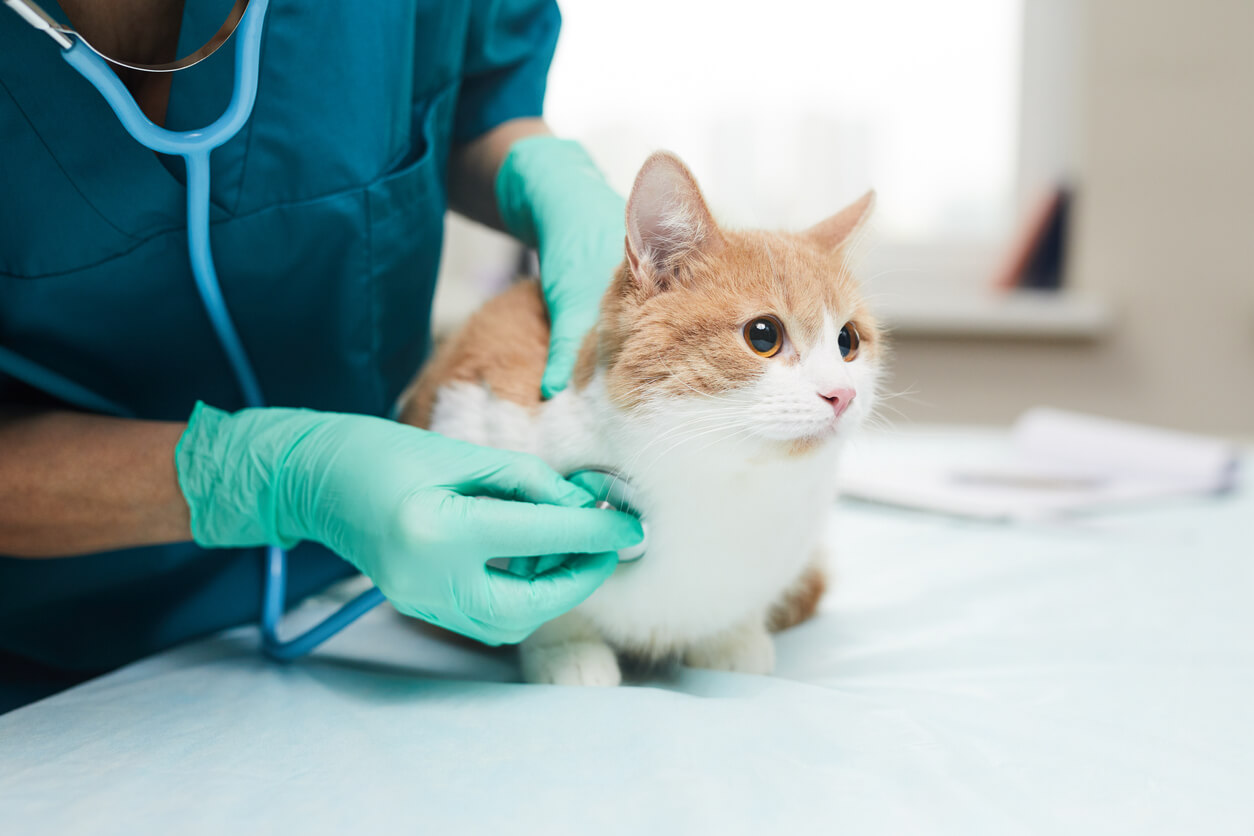Vaccination Guidelines From Your Trusted Vet
Vaccination guidelines given by your trusted vet play a critical role in guarding your pet's wellness and health. Additionally, resolving common mistaken beliefs surrounding injections can further improve pet dog owners' self-confidence in these preventative steps.

Importance of Inoculations
Vaccinations play a pivotal duty in guarding pets against a series of preventable diseases. By boosting the body immune system to acknowledge and fight particular pathogens, injections substantially reduce the incidence of transmittable illness that can impact a pet's health and long life. Not only do inoculations secure individual animals, yet they likewise add to herd resistance, consequently decreasing the overall frequency of illness in the pet populace.
Timely inoculations assist to mitigate the spread of conditions such as rabies, parvovirus, and distemper, which can have severe effects for both human beings and animals. Inoculations are typically a need for boarding facilities, brushing solutions, and dog parks, making them necessary for those who want to mingle their pets.

Core Injections for Pets
While the details vaccination needs of pet dogs can differ based upon private factors, core vaccinations are generally recommended to secure against one of the most serious and usual diseases (Pet Vaccinations). Core vaccines are those regarded important for all pet dogs, despite their way of living or geographic place, as they guard against very contagious and possibly deadly health problems
For canines, the core injections include those for canine distemper, parvovirus, adenovirus (liver disease), and rabies. Adenovirus can result in liver condition, while rabies is a zoonotic disease that poses a risk to both animals and people.
In pet cats, core injections incorporate feline panleukopenia, feline calicivirus, feline herpesvirus (rhinotracheitis), and rabies. Feline panleukopenia is a very transmittable viral condition that impacts the body immune system and intestines. Calicivirus and herpesvirus are significant factors to upper respiratory infections in cats, while rabies remains a vital concern for public health and wellness.
Consult with your veterinarian to ensure your pets receive their core inoculations on time.
Non-Core Vaccines Explained
Non-core injections are tailored to attend to specific risks linked with a pet's atmosphere, way of life, and exposure to certain diseases. Unlike core vaccinations, which are generally advised for all pets, non-core vaccinations are taken into consideration based upon private scenarios. These injections are particularly crucial for family pets that may run into special pathogens due to their geographical area, travel behaviors, or activities.
Instances of non-core injections include those for Bordetella bronchiseptica, which is connected to kennel cough, and Lyme illness, brought on by ticks. Animals that regularly communicate with various other animals, such as those in boarding facilities, pet dog parks, or grooming atmospheres, may take advantage of Bordetella vaccination. If you live in a location where Lyme disease is common, vaccinating versus this condition can be a prudent option for weblink outdoor-loving dogs.
Various other non-core vaccinations may include those for leptospirosis, canine flu, and feline leukemia, depending on the details risk elements existing. It is important to have an extensive conversation with your vet about your animal's lifestyle and the prospective requirement for these vaccinations, guaranteeing a tailored vaccination technique that ideal protects your hairy friend.
Inoculation Set Up Overview

As pet dogs mature, it is crucial to stick to the recommended booster inoculations. Veterinarian Enterprise. For adult animals, core injections are commonly given every one to three years, depending upon the certain vaccination and neighborhood laws. Non-core vaccinations might be suggested based on lifestyle factors and regional illness occurrence, demanding a customized technique
Normal vet exams are crucial for updating inoculation schedules. Your veterinarian can offer assistance on the most appropriate immunizations for your pet, factoring in age, health standing, and ecological dangers. By remaining positive and informed, animal owners can guarantee their hairy friends get reliable and prompt inoculations, consequently protecting their health and health throughout their lives.
Usual Misconceptions Regarding Vaccines
Misunderstandings concerning pet dog inoculations can result in confusion and hesitation among animal owners pertaining to the booster shot process. One common myth is that vaccines are unnecessary for indoor family pets. While it's real that indoor pet dogs deal with lower risks, they are not entirely immune to conditions, as microorganisms can be presented through different means, consisting of human clothing and various other pet dogs.
One more mistaken belief is that vaccines can create the illness they aim to protect against. Actually, the majority of vaccines contain suspended or undermined microorganisms, which can not create disease in healthy and balanced animals. Some pet dog owners additionally company website believe that their family pets should not be immunized if they are currently healthy; nonetheless, inoculations are a proactive measure that aids stop the beginning of ailment.
In addition, many animal owners are afraid that vaccinations will certainly lead to long-term health complications. The advantages of inoculation-- shielding pets from potentially deadly diseases-- far surpass the threats.
Verdict
In recap, adherence to vaccination standards is essential for ensuring the wellness and longevity of pet dogs. Dispelling usual myths bordering vaccinations additionally enhances the significance of educated decision-making in animal treatment.
Not only do inoculations shield private pets, but they likewise add to herd immunity, therefore decreasing the total prevalence of illness in the pet dog population.
Misconceptions regarding pet dog inoculations can lead to confusion and unwillingness amongst pet owners relating to the immunization process. While it's true that interior pet dogs encounter lower dangers, they are not entirely immune to conditions, as pathogens can be introduced via various means, including human garments and various other pets.
Some animal owners likewise think that their family pets should not be vaccinated if they are already healthy; nevertheless, vaccinations are a positive action that aids prevent the onset of illness.
The benefits of vaccination-- shielding pet dogs from possibly life-threatening illness-- far exceed the dangers.